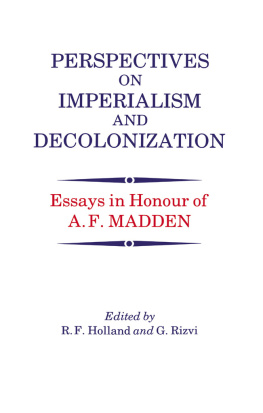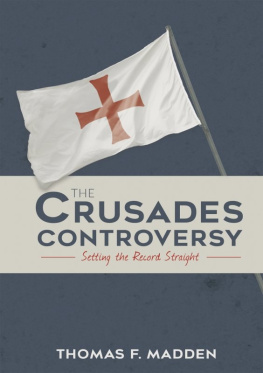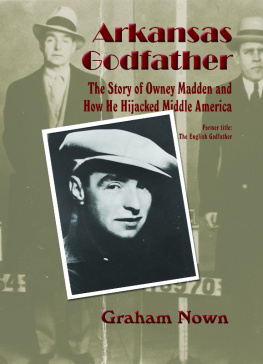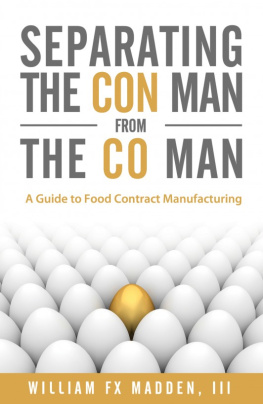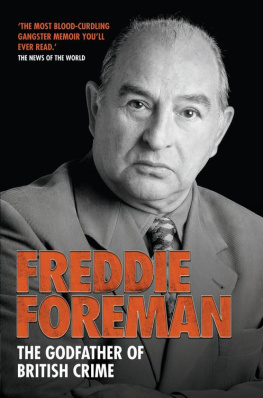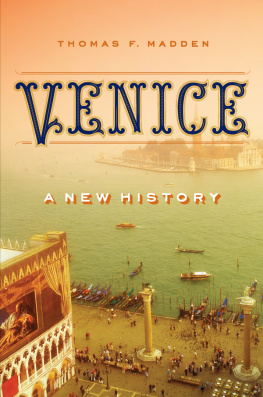First published 1984 in Great Britain by
FRANK CASS AND COMPANY LIMITED
2 Park Square, Milton Park,
Abingdon, Oxon, OX14 4RN
and in the United States of America by
FRANK CASS AND COMPANY LIMITED
270 Madison Ave, New York NY 10016
Transferred to Digital Printing 2006
Copyright 1984 Frank Cass & Co. Ltd.
British Library Cataloguing in Publication Data
Perspectives on imperialism and decolonization.
(Journal of imperial and commonwealth history, ISSN 0308-6534 ; v. 12, no. 2)
1. ImperialismHistory 2. EuropePolitics and government1789-1900 3.EuropePolitics and government20th century
I. Holland, R.F. II. Rizvi, G. III. Madden, A.F. IV. Series 325.32094 JC359
ISBN 0-7146-3242-2
eISBN 978-1-13457-150-5
Library of Congress Cataloging in Publication Data
Perspectives on imperialism and decolonization.
1. ColoniesHistoryAddresses, essays, lectures.
2. DecolonisationHistoryAddresses, essays, lectures.
3. Madden, A. F.Addresses, essays, lectures.
I. Holland, R. F. II. Rizvi, Gowher.
JV105.P48 1984 325.32 84-1886
ISBN 0-7146-3242-2
Printed and bound by Antony Rowe Ltd, Eastbourne
This group of studies first appeared in a Special Issue on Perspectives on Imperialism and Decolonization: Essays in Honour of A. F. Madden of Journal of Imperial and Commonwealth History, Vol. XII, No. 2, published by Frank Cass & Co. Ltd.
All rights reserved. No part of this publication may be reproduced, stored in a retrieval system, or transmitted in any form, or by any means, electronic, mechanical, photocopying, recording, or otherwise, without the prior permission of Frank Cass and Company Limited.
by
Michael Brock
Every enterprise needs at least one old hand. The Harrowby Papers include an account of the cannonade at the Battle of Fontenoy by a young staff officer. Our old officers say, he wrote, there never was so hot work except at Malplaquet. he is giving equally good ones today. His career has spanned a great change in this area of the Universitys work. Surveying the period from the election of the first Beit Professor in 1905 to 1971, he wrote in Oxford and the Idea of Commonwealth:
There was also for the greater part of this period another mark of Oxford imperial history a missionary fervour for Commonwealth. Within the University and the curriculum its intellectual force derived more from the Christian humanitarianism of Coupland and Harlow than from Curtis.
The last of the Round Table dynasty cannot have read Kiplings poems with sufficient care; or perhaps they were prejudiced against the poet who had refused to serve on the Rhodes Trust with Philip Kerr. They did not apply to their own plans the message about the impermanence of all such planning with which Kipling comforted himself after the Liberal victory of 1906.
This seasons daffodil,
She never hears,
What change, what chance, what chill,
Cut down last years;
But with bold countenance
And knowledge small,
Esteems her seven days continuance,
To be perpetual.
These established apostles of the Commonwealth did not know that in a Cambridge pub two irreverent neophytes named Jack Gallagher and Ronald Robinson had begun to look on Britain as a country which was being colonized, and thus to study its imperial past from a wholly different perspective. Freddie had acted as caretaker in the interregnum between Coupland and Harlow. His second caretakership from December 1961 to April 1963 marked the end of an era. With Jack Gallaghers move to Oxford in the latter month a new dynasty acceded to the Beit chair.
This was a revolution in academic style. Add the emotions engendered by decolonization, and the result has been a turmoil which would have taken many learned helmsmen off course. It has not shaken Freddie. He accepted that it involved a basic reassessment of the nature and significance of Commonwealth history as this had been taught at Oxford and he incorporated much of the new thinking in his writing and teaching. But his belief in three great truths was not affected: the British Empire and Commonwealth should be studied and judged, first, as a whole; secondly, in the perspective of long periods of time; and, thirdly, as a complex and varied governmental entity. It would be hard to find a less fashionable set of positions. The first two involved working against the academic tide: the third runs counter to some of the strongest popular feelings of our time. Freddie Madden writes:
In the literature generated after a colony has achieved independence the outlook has tended to be narrowed... by a zenophobic funnel vision so that one gains the impression that a particular colony existed in a vacuum locked in isolated constitutional combat with the metropolis. This has become more evident recently with the balkanization of imperial history into area, regional, continental, or more absurdly Third World, history. But even in mature ex-colonies like Canada and Australia, departments of history regard with evident pride their ignorance of the parallel histories of other colonies within the common imperial experience.
Those remarks are taken from the introduction to the Madden and Fieldhouse Constitutional Documents of the British Empire, now being prepared for an American publisher. One primary aim of the editors has been to show the balance of forces in the Imperial scene. The reader is told:
The documents have been chosen and arranged thematically so that at every stage ideas, policies and actions emanating from England are balanced by those evolving in individual colonies; and by setting together evidence on many of those colonies which shared similar problems it is intended to show how much was in common between them and how much experience in any one of them might affect others.
There have been great gains from this brave resistance to the overspecialization and fragmentation which have become characteristic of much historical study. In the chapter of the Cambridge History of the British Empire, Volume 3, which Freddie wrote in Harlows place (against a deadline in four months), he quotes the Liberal administrations pledge of February 1906 to advance the principle of equal rights in South Africa for civilized men irrespective of colour, and points to the attitude of the Australian and New Zealand governments as a key factor in nullifying this promise.

